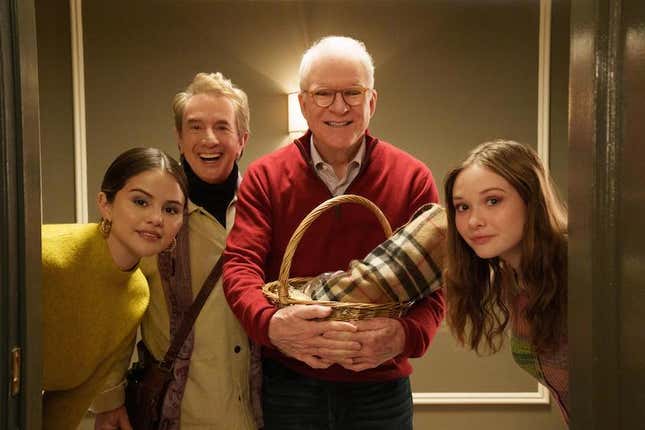‘Only Murders’ Nails the Growing Divide Between Millennials, Gen-Z
Most shows treat the two generations as interchangeable. An exchange between Selena Gomez and guest-star Zoe Colletti drives home the fact that they are not.
EntertainmentTV

Hulu’s Only Murders in the Building—the comedy-mystery starring Selena Gomez, Steve Martin, and Martin Short as true crime podcast-stans-turned-citizen-sleuths—was nominated for 17 Emmys this week, and for good reason. The show is somehow still a constant delight even in its second season, and arguably its greatest strength is its clever, culturally relevant writing and dialogue.
This week’s episode was no exception. The gang is currently waist-deep in being framed for their building president’s murder and podcasting about it every step of the way. On top of it all, seemingly out of nowhere, Charles’ (Martin) former almost-stepdaughter Lucy—a very hip teenager—shows up, and is surprisingly incredibly helpful, revealing secret passageways concealed within the heart of the Arconia that you’d think three, bonafide, adult detectives would have been able to uncover themselves.
-

-

-

-

-

-

-

-

-

-

-

-

-

-

-

-

-

-

-

-

-

-

-

-

-

-

-

-

-

-

-

-

-

-

-

-

-

-

-

-








































